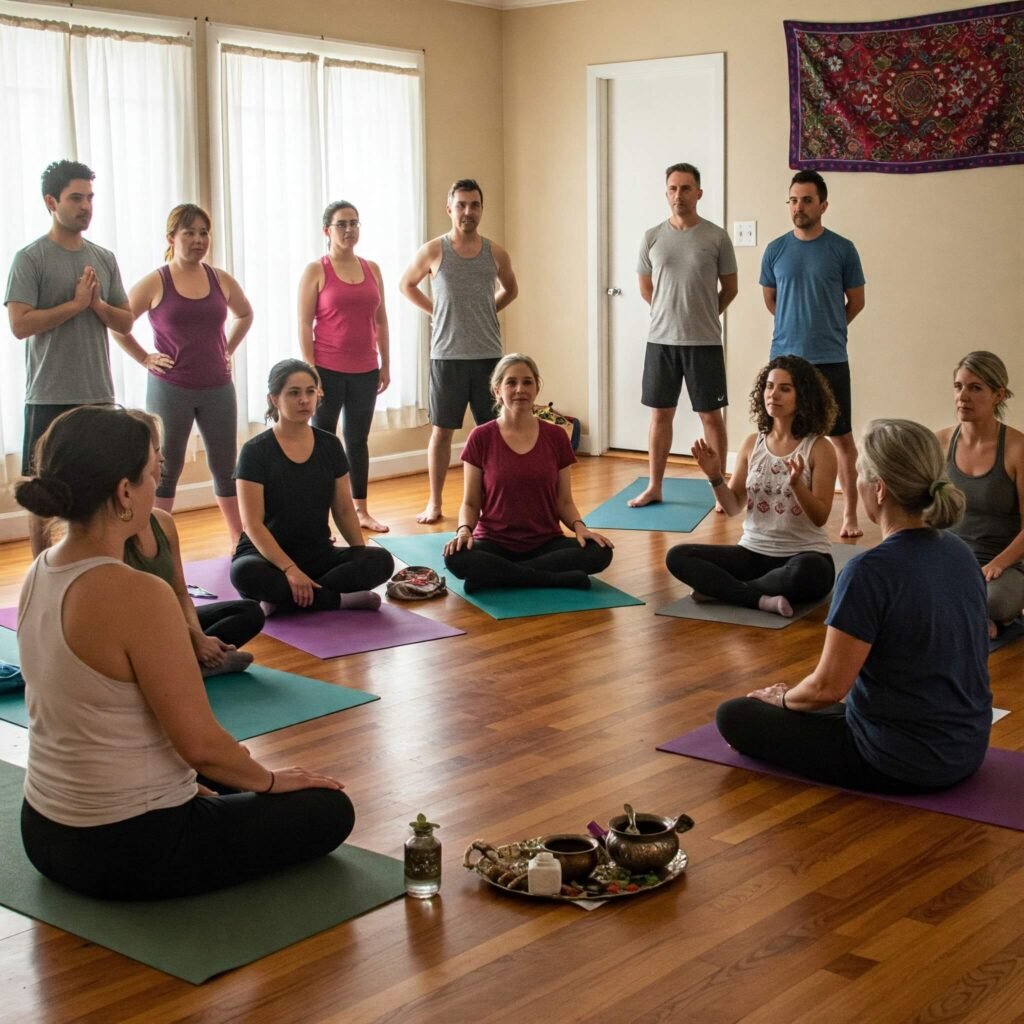Welcome, fellow seekers of well-being! As an experienced blogger, I’m excited to discuss how Ayurveda and Yoga are finding their place in modern healthcare. These ancient Indian practices offer a holistic approach to health and can complement conventional medical treatments. Let’s explore how these traditions can enhance our lives for greater vitality and balance.
The Intertwined Nature of Ayurveda and Yoga
Ayurveda and Yoga are considered sister sciences. They share philosophy and health approaches. Ayurveda, the “science of life,” focuses on individual constitution (dosha), promoting balance through diet, lifestyle, herbs, and therapies. Yoga, meaning “union,” uses postures (asanas), breathing (pranayama), and meditation to harmonize body, mind, and spirit.
When combined, these ancient practices offer a comprehensive wellness framework:
- Personalized Approach: Ayurveda’s focus on doshas allows tailored yoga and diet for maximum benefit.
- Mind-Body Connection: Both recognize the link between mind and body, addressing root causes, not just symptoms.
- Preventive Care: They promote healthy habits and self-awareness, empowering proactive illness prevention.
- Stress Management: Yoga’s breathing and meditation, plus Ayurvedic lifestyle tips, effectively manage stress, a major factor in modern health issues.

Modern Healthcare Embraces These Ancient Practices
Once alternative, Ayurveda and Yoga are gaining recognition in modern healthcare. Scientific research is validating their effectiveness in managing various conditions and improving overall well-being.
- Pain Management: Studies show yoga benefits chronic back pain, arthritis, and fibromyalgia. Ayurvedic therapies like Abhyanga (oil massage) also relieve pain. (Outbound Reference Link :- https://www.nccih.nih.gov/health/providers/digest/yoga-for-pain)
- Mental Health: Yoga and meditation are increasingly recommended for anxiety, depression, and PTSD. Ayurveda offers specific herbs and lifestyle practices for mental well-being. (Outbound Reference Link :- https://www.psychiatry.org/news-room/apa-blogs/yoga-as-a-mental-health-treatment)
- Cardiovascular Health: Research suggests yoga can lower blood pressure and improve heart rate variability. It may also reduce cholesterol. Ayurvedic diets emphasize heart-healthy foods.
- Improved Immunity: Both traditions boost the immune system by reducing stress, improving digestion, and using specific herbs and practices.
Integrating These Ancient Practices into Your Daily Routine
Integrating Ayurveda and Yoga doesn’t require drastic changes. Small, consistent steps can bring significant benefits:
- Start with Personalized Yoga: Explore different yoga styles. Find one that suits your body and needs. Consider your Ayurvedic dosha for guidance. Incorporate Ayurvedic Diet: Focus on whole, unprocessed foods. Eat according to your dosha. Practice mindful eating. Practice Daily Mindfulness: Even a few minutes of daily meditation and pranayama can reduce stress and improve mental clarity. Explore Ayurvedic Self-Care: Include practices like oil pulling, tongue scraping, and self-massage (Abhyanga).
- Consult Qualified Practitioners: Seek guidance from certified yoga instructors and Ayurvedic practitioners. They offer personalized recommendations and treatments. (Outbound Reference Link :- https://www.ayurvedanama.org/)

The Future of Well-being: A Holistic Approach
The future of healthcare is more integrative. It will combine modern medicine with ancient practices like Ayurveda and Yoga. By recognizing the mind-body-spirit connection and empowering individuals, we can create a better healthcare system.
Key Takeaways for Integrating Ayurveda and Yoga:
- Understand your unique Ayurvedic constitution (dosha).
- Find a yoga practice that suits your individual needs.
- Incorporate mindful eating and Ayurvedic dietary principles.
- Prioritize daily stress management through yoga and meditation.
- Seek guidance from qualified practitioners for personalized support.

Conclusion: Embracing a Balanced Life with Ayurveda and Yoga
The integration of Ayurveda and Yoga into modern healthcare offers a path to holistic well-being. By embracing these ancient practices, we can unlock our healing potential, cultivate greater balance and resilience, and ultimately lead healthier and more fulfilling lives. This isn’t about replacing modern medicine; it’s about creating a more comprehensive and personalized health approach that honors ancient wisdom and modern advancements.





































